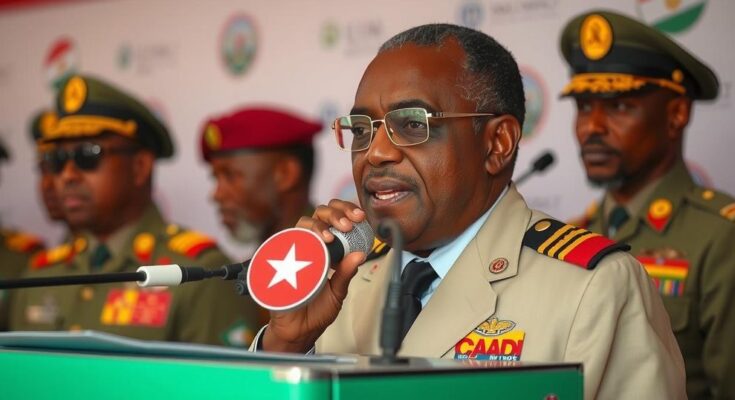Chad’s recent general election, seen as a step toward ending military rule, faced low voter turnout due to opposition calls for boycott. Turnout was reported at just 38%. Opposition leaders asserted results were predetermined, while citizens expressed skepticism about the electoral process. The elections are viewed as crucial in the country’s transition to democracy amid ongoing security challenges.
Chad held its general election on Sunday as a significant step toward transitioning away from military rule, despite a call for boycotts by opposition parties resulting in low voter turnout. As of midday, the election management agency reported a turnout of only 38 percent for parliament, provincial, and local council positions. Observers noted that the ruling government attributed voter apathy to adverse weather conditions, although opposition leaders claimed their movements significantly influenced attendance. With many voters staying home, candidates linked to President Mahamat Idriss Deby Itno, who assumed power in 2021, are likely to dominate the election outcomes.
Opposition leader Succes Masra claimed that the election results had been predetermined, and various citizens voiced skepticism about the election’s integrity. A construction worker turned taxi driver expressed disillusionment, stating, “there’s no real voting in Chad”. In contrast, some voters did participate with hopes for substantial changes in the country, emphasizing the need for job creation, justice, and equality.
Voting occurred under the watch of about 100 foreign observers amid allegations of electoral malpractice, including the disappearance of ballots reported by opposition parties. These elections are framed by the government as the concluding phase of their transition to democracy following a military-led government established after the death of long-time ruler Idriss Deby. Despite ongoing security challenges such as Boko Haram attacks and regional tensions, the government continues to assert its commitment to democratic processes.
Chad has been under military rule since the death of President Idriss Deby in 2021, effectively ending a three-decade regime. The current government, led by his son Mahamat Idriss Deby Itno, has portrayed these elections as pivotal in reinstating democratic governance. However, the political landscape is fraught with skepticism, particularly from opposition parties claiming fraud and predetermined results. Voter apathy is exacerbated by socio-economic challenges, lack of faith in the electoral system, and recent violence fueled by jihadist groups. This election also comes in the wake of Chad’s contentious foreign relations, particularly with France, and its involvement in regional conflicts.
The recent elections in Chad have illuminated the challenges facing the country as it attempts to transition from military rule to democratic governance. The low voter turnout arising from opposition boycotts suggests widespread disillusionment among the populace regarding the electoral process. Despite the government’s assertions of progress, significant skepticism remains about the integrity of the elections and the future of democracy in Chad. As the situation unfolds, the implications of this election will be critical in shaping Chad’s political and social landscape moving forward.
Original Source: www.kpvi.com




